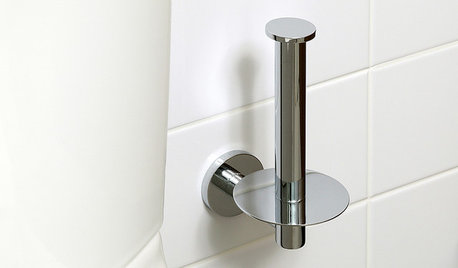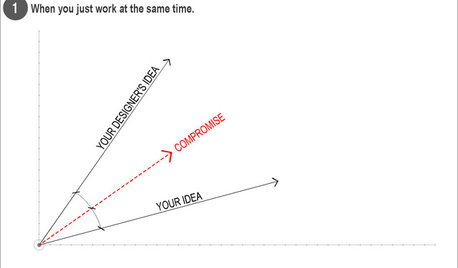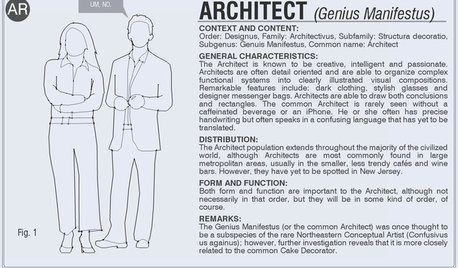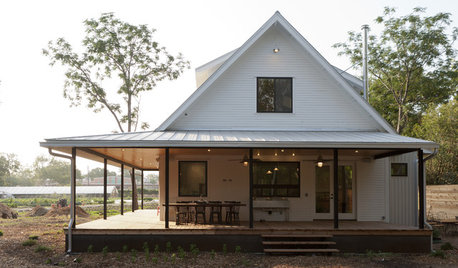Gripe
inkognito
16 years ago
Related Stories

SMALL HOMESMicrounits Are Coming to NYC. See the Winning Design
Say goodbye to only arm-and-a-leg Manhattan rents. This plan for small prefab units opens the door to more affordable housing
Full Story
FUN HOUZZ14 Things You Need to Start Doing Now for Your Spouse’s Sake
You have no idea how annoying your habits at home can be. We’re here to tell you
Full Story
FUN HOUZZ10 Truly Irritating Things Your Partner Does in the Kitchen
Dirty dishes, food scraps in the sink — will the madness ever stop?
Full Story
COFFEE WITH AN ARCHITECTThe Forces Acting on Your Design
Perhaps you're not aware of all the dynamic forces at work in your home design process. Here's a graphical analysis
Full Story
HOUSEKEEPINGWhen You Need Real Housekeeping Help
Which is scarier, Lifetime's 'Devious Maids' show or that area behind the toilet? If the toilet wins, you'll need these tips
Full Story
HOUZZ TOURSHouzz Tour: Natural Meets Industrial in a Canal-Side Washington Home
Wood and steel mix with copious glass in a contemporary new build that seamlessly transitions to the outdoors
Full Story
COFFEE WITH AN ARCHITECTClassification of the Design Species
A scientific analysis of the diverse variety of species found in the world of design
Full Story
DECORATING GUIDESCity View: Cincinnati Embraces Old and New
A Midwestern burgh takes pride in its architectural history while warming to simple, practical, modern styles
Full Story
ARCHITECTUREWhat the Heck Is 'Good' Design Anyway?
We yearn for it and strive for it, but good home design isn't always easy to grasp. These 8 prescriptions from an architect can help
Full Story
HOUZZ TOURSHouzz Tour: A Photographer's Picture-Perfect Home Comes Into Focus
An ultramodern house in the Hollywood Hills is a study in contrasts: curvy and boxy, forward thinking and retro
Full Story





watergal
The_Mohave__Kid
Related Professionals
Simpsonville Landscape Architects & Landscape Designers · Ballenger Creek Landscape Architects & Landscape Designers · Otsego Landscape Architects & Landscape Designers · Signal Hill Landscape Architects & Landscape Designers · Suffern Landscape Architects & Landscape Designers · Winder Landscape Architects & Landscape Designers · Bergenfield Landscape Contractors · Canyon Lake Landscape Contractors · Cary Landscape Contractors · Fort Payne Landscape Contractors · Saint Paul Landscape Contractors · The Woodlands Landscape Contractors · Oxon Hill Landscape Contractors · Golden Valley Landscape Contractors · Shafter Landscape Contractorsthistle5
watergal
Embothrium
laag
shadyplaces
gonativegal
laag
nwnatural
watergal
txjenny
rachel_z6
laag
Embothrium
inkognitoOriginal Author
laag
shadyplaces